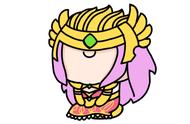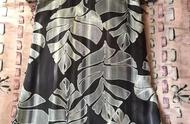The first day he brought home fifty cents, which he gave to his mother to buy food with.
第一天,他把五毛钱带回了家,让妈妈用这些钱去买吃的。
When he gave her the money, she said, as she dropped a tear of joy,"You are a dear, good boy, Henry.
当他把钱交给妈妈时,妈妈流下了高兴的眼泪:“亨利,你是一个可爱的好孩子。

I did not know how I could earn enough to buy bread with, but now I think we can manage to get along quite well,”
我不知道怎么赚足够的钱买面包,但我觉得现在我们可以很容易地买到了。”

Henry worked all the day, and went to school in the evening.
亨利要干一整天的活,晚上去学校上课。
He earned almost enough to support his mother and his little sister.
他赚的钱几乎足够用来供养妈妈和小妹妹。

bootblack
英 ['buːtˌblæk] 美 ['bʊtˌblæk]
n. 擦鞋匠
earn
英 [ɜːn] 美 [ɜːrn]
vt. 赚得;赢得;获得
pocketbook
英 ['pɒkɪtbʊk] 美 ['pɑːkɪtbʊk]
n. 财力;皮夹子;袖珍本;<美>必须花费的钱
adj. 经济收益的
taught
英 [tɔːt] 美 [tɔːt]
v. 教;教导;教授;教训(动词teach的过去式和过去分词)
black
英 [blæk] 美 [blæk]
adj. 黑的;不加牛奶的;很脏的;愤怒的;令人沮丧的;邪恶的;阴沉的;机密的;黑色幽默的
n. 黑色;黑人;黑色物
v. 抵制;(使)变黑
boot
英 [buːt] 美 [buːt]
n. 靴子;猛踢;解雇;[英]汽车行李箱
vt. 踢;穿靴子;逐出;启动(计算机)
get along
英 [ɡet ə'lɒŋ] 美 [ɡet ə'lɔːŋ]
进展;前进;过活;友好相处















